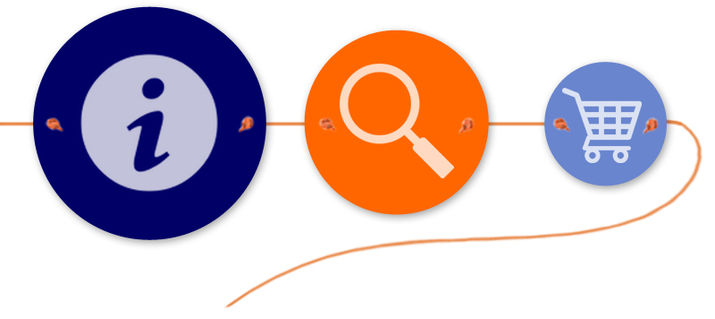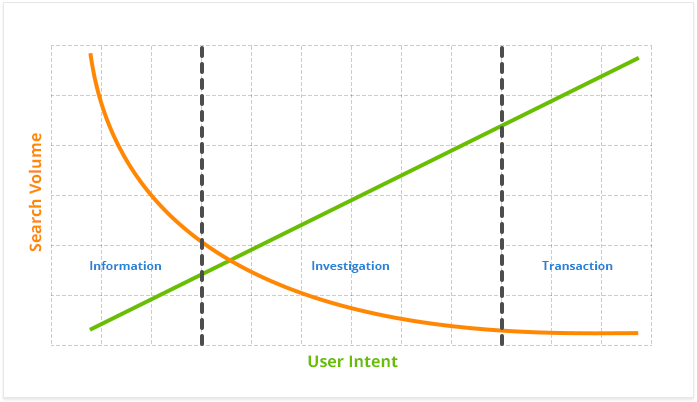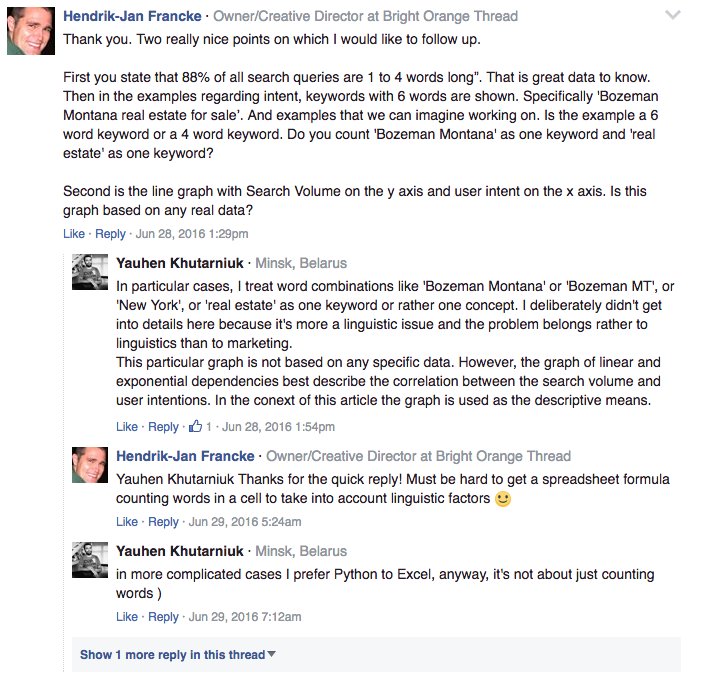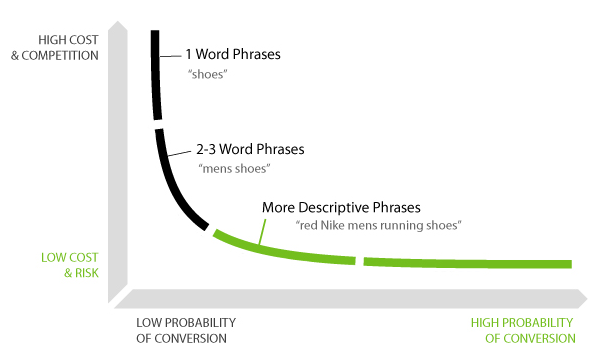
Our Blog: Bright Ideas & Strategies for Improving Business Websites

When a Long-Tail Keyword Is Too Long to Help Search Rankings
The short answer: it’s too long if it contains an irrelevant word.
But the long answer stems from analyzing which words users search for and what type of searches they are (based on the user’s intent). The question is: What do users want to get out of the search? This boils down to 3 main search types:
- Informational, example: tractors (“I want to learn”)
- Investigational, example: best tractors for small farms (“I want an answer”)
- Transactional, example: buy tractors near me (“I want to buy”)
50% to 80% of searches are informational searches and only 6% of Google searches return shopping results (i.e., transactional).
As we researched this topic more, we found a detailed and useful article from SEO PowerSuite about keyword research. But this article makes a questionable assumption that we think is worth exploring.
The assumption is that it’s a waste of time to target keyword phrases longer than 4 words because 88% of web searches (in English) have 1 to 4 words.
Targeting 5+ word long-tail phrases isn’t a waste of time
While it’s true that people tend to search with short phrases, long-tail phrases with 5+ words can capture prospects that have a more specific intent.
As the graph below shows, longer keywords related to a user’s intent to purchase something bring in the best results: conversions, purchases, etc. We’re seeing that long-tail keywords related to purchases are the most valuable. Should we really believe if we add one more word to the keyword it screws it up?

This is the graph from the SEO PowerSuite article showing a negative correlation with search volume and user intent
We decided to fact check to figure out what “4 words” really counts towards:

Longer keywords drive more conversions
In this blog post, Neil Patel shows a bar graph giving us the same takeaway as SEO PowerSuite’s:

He says lengthy long-tail keywords have less search volume than generic ones (i.e., one with irrelevant or unspecific words in them) and short-tail keywords, but adds that the longer keywords have a higher probability of conversion.
Longer keywords are often transactional because they signal an interested buyer looking for exactly what they want.
The highest transactional searches are hyper-specific long-tail keywords
Search “buy television." A million technology retailers flood your results with paid ads, and they don’t care what company gets your business.
Now search "Sharp HD Series LC 50LB370U - 50 LED TV." It’s more than 4 words, and parts aren’t even English, but this hyper-specific search says they want to buy this TV, not learn the specifics of the model, or even price gauge.
The search results will lead them to vendor’s sites where they can enter their credit card info and click “Complete Transaction”.
Target specific long-tail keywords so prospects find your B2B service
Let's say you're a B2B company selling SaaS. Your product handles all human resources needs for small accounting firms. Unless your prospects have heard of your company, they won't search brand related terms.
They will most likely use highly competitive keywords related to your industry. To ensure your ideal buyer finds your services page, target specific long-tail keywords in your content, such as "outsourced human resources accounting firm."
Keep the keyword relevant to their intent so you don’t only have a high chance of landing in their pool of search results, but also a high chance of beating your competitors for click-throughs. Why care if the keyword is 7 words long if you convert a prospect or, even better, you gain a new customer?
You can’t target every variation of long-tail keywords
In Google’s dinosaur era, webmasters drove traffic to their sites with single pages optimized for one long-tail keyword variation.These short pages didn’t add value to searches and just repeated the targeted phrase a lot. Yet search engines rewarded the sites with more traffic.
Google is smarter now, and variations are treated as one and the same:
- Human resources software equals software resources human (word sequences)
- Software as a Service or SaaS equals software (abbreviated words)
- HR department equals human resources (synonymous words)
Vary keywords in your content to avoid repetition and don’t create gateway pages to target each variation. Google weeds out and buries gateway pages and all pages of low-value content, especially with overly repetitive keywords.
Keyword relevance trumps length, but length still helps rankings
A long-tail keyword is too long when you don’t understand your prospect or customer’s intent and weaken the keyword with irrelevant words. A long-tail keyword should be a search phrase that might roll out of the prospect or customer's mouth when they brainstorm what they’re searching for. No one will find your content if it targets an intent it doesn’t aim to satisfy.
But don’t confuse relevance and specific for short. Don’t stray from targeting longer, specific keywords. Find the right balance between relevance and specificity and you’ll not only rank highest compared to competitors but also have the most traffic clicking through to your content.
Be a Bright Marketer
Improve your website & online marketing strategy with resources, tips, and insights delivered to your inbox 1-2 times per week.
Subscribe to the Bright Orange Thread Content Library today for instant access to these resources!